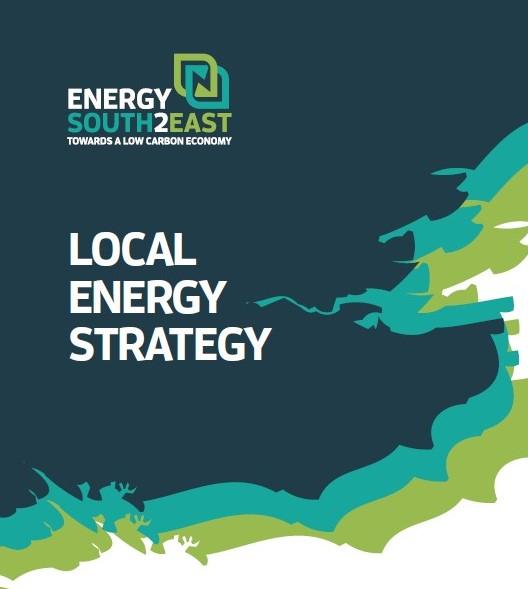
Enterprise M3 LEP has teamed up with its neighbouring LEPs to deliver an ambitious energy strategy designed to cut carbon emissions and promote clean growth across the whole of the South East.
The South2East Local Energy Strategy, which will help meet statutory climate change targets for 2032 and 2050, has been drawn up by the South East Local Enterprise Partnership (SELEP), Coast to Capital and Enterprise M3 LEPs, in partnership with Siemens.
The shared vision for the region is to become a leader for sustainable energy production within the UK, powering innovative, decarbonised and clean economic growth.
Enterprise M3 chair Dave Axam will be joining his fellow LEPs to announce the strategy at The Crystal in London, one of the world's most sustainable buildings, on March 25th.
Clean growth is an essential part of our local industrial strategy. So I’m really pleased that we have completed this Energy Strategy and that we have done this in partnership with other local LEPS.
To turn this strategy into action Enterprise M3 created a funding call in December to support delivery of clean growth initiatives targeted at projects that will make a significant difference to the businesses and people in our Enterprise M3 area. Clean growth is about growing our economy whilst improving the quality of life.
Enterprise M3 area is known for its knowledge based, design led digital economy. It is because of this that I am confident we have the knowledge to continue to grow our economy and to do this in a clean growth way.
I therefore encourage anyone in the local area with a plan, a policy, an aspiration to get in touch and work with us to drive forward this change.
The agreed strategy lists five priority themes for action:
- Low carbon heating;
- Renewable energy generation;
- Energy saving and efficiency;
- Smart energy systems;
- And transport.
If this strategy is delivered in line with recommendations, by 2032 the tri-LEP region aims to deliver impact in the short and medium term, and prepare the foundation for meeting long-term targets through:
- Securing investment in the region towards an estimated £14.755 billion of commercially and technically viable projects which deliver healthy returns to stakeholders
- Delivering a reduction in emissions across the electricity, heat and transport sectors of 13,615 kT CO2e, which is the equivalent of removing all five million cars in the south east from the road
- Transitioning 47,455 GWh from polluting, high-carbon generation to clean energy sources, the equivalent of providing all 3.4 million homes in the tri-LEP region with a low-carbon supply of both electricity and heating
- Creating or securing 75,652 jobs across the tri-LEP area
Within the 5 priority themes, 18 key project models have been identified which can be rolled out and scaled up across the region and that will attract investment and achieve significant carbon emission savings.
These include:
- Supporting the development of district heat networks;
- Connecting off-grid homes to gas supplies;
- Hydrogen injection into the natural gas grid to lower the carbon content of gas;
- Encouraging offshore wind development;
- Developing solar arrays on council-owned landfill sites; and
- Supporting the development of a biomass supply chain to use the South East’s natural resources.
Further project models include supporting the scaling up of the ultra-low emissions vehicle charging infrastructure across the South East; supporting the roll out of the use of compressed natural gas for HGV fleets; build housing developments fuelled by hydrogen for heating and cooking; and supporting the development of carbon capture, usage and storage.
The Strategic Boards of Coast to Capital, Enterprise M3 and South East LEPs will provide direction, investment scrutiny and advocacy for the ambitions set out in the plan.
A Strategic Energy Delivery Group will be established to coordinate delivery, to pursue and coordinate opportunities to deliver the Project Models and to ensure that opportunities for cooperation and upscaling are identified and acted on.
From 1 April 2024, the responsibility for LEP functions across the Enterprise M3 LEP region has transferred to Hampshire County Council and Surrey County Council.
The Enterprise M3 Board met for the last time in March 2024 and Enterprise M3 LEP is no longer operating as an organisation.
For any enquiries relating to economic development across the counties of Hampshire and Surrey, please visit the Hampshire County Council website and Business Surrey respectively.
Please note that Enterprise M3 LEP staff have transferred to Hampshire County Council to continue to deliver services and activities in Hampshire, including the Growth Hub, the Careers Hub, work on key business sectors, and trade and investment.
They can be contacted at economic.development@hants.gov.uk.
Collaborate with us to connect with organisations, people and ideas

